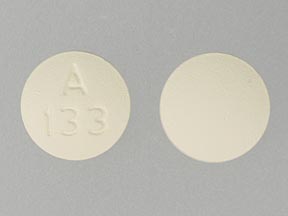
Bupropion Hcl ER (sr) Coupons & Savings Card – Discount Prices from $11.29
Generic for: Wellbutrin sr
My prescription
Edit
150MG, Bupropion Hcl ER (sr) (30 Tablet Extended Release 12 Hours)
Select pharmacy

CVS
$19.54
COUPON PRICE
Walgreens
$11.29
COUPON PRICE
Walmart
$11.74
COUPON PRICE
Albertsons
$12.36
COUPON PRICEBupropion Hcl ER (sr) savings card
Show this card to your pharmacist
Walgreens
$11.29
BIN
ID
PCN
GRP
019876
LH9E4FB80F
CHIPPO
LHX
Powered by
More prescriptions for depression
More prescriptions for depression
Price history for Wellbutrin Sr (brand) & Bupropion Hcl ER (sr) (generic)
30 Tablet Extended Release 12 Hours, 150MG
Average retail price for Wellbutrin Sr
Average retail price for Bupropion Hcl ER (sr)
Average SaveHealth price for Bupropion Hcl ER (sr)
Our price history data is based on aggregated prescription data collected from participating pharmacies in America. Our prescription data updates daily to reflect the latest price changes. If you notice a missing data point, it means there wasn't sufficient data available to generate a monetary value for that date.
We analyzed Bupropion Hcl ER (sr) prices for (150MG, 30 Tablet Extended Release 12 Hours) over the last 12 months. The average retail price was $62.14, while the average price using the SaveHealth discount card was $9.14. That's a savings of approximately 85.29% when using our Bupropion Hcl ER (sr) coupon.
Compared to the generic version, Wellbutrin Sr had an average price of $533.20 over the same time period. With the SaveHealth savings card, Bupropion Hcl ER (sr) is 98.29% cheaper on average than Wellbutrin Sr.
*Retail prices are based on pharmacy claims data, and may not be accurate when we don't have enough claims.
Bupropion Hcl ER (sr) dosage forms
Dosage Quantity Price from Per unit 100MG 30 Tablet Extended Release 12 Hours $10.79 $0.36 100MG 60 Tablet Extended Release 12 Hours $12.58 $0.21 100MG 90 Tablet Extended Release 12 Hours $21.42 $0.24 100MG 120 Tablet Extended Release 12 Hours $23.55 $0.20 100MG 180 Tablet Extended Release 12 Hours $27.83 $0.15 150MG 30 Tablet Extended Release 12 Hours $11.29 $0.38 150MG 60 Tablet Extended Release 12 Hours $13.57 $0.23 150MG 90 Tablet Extended Release 12 Hours $22.51 $0.25 150MG 180 Tablet Extended Release 12 Hours $30.02 $0.17 150MG 270 Tablet Extended Release 12 Hours $37.42 $0.14
| Dosage | Quantity | Price from | Per unit |
|---|---|---|---|
| 100MG | 30 Tablet Extended Release 12 Hours | $10.79 | $0.36 |
| 100MG | 60 Tablet Extended Release 12 Hours | $12.58 | $0.21 |
| 100MG | 90 Tablet Extended Release 12 Hours | $21.42 | $0.24 |
| 100MG | 120 Tablet Extended Release 12 Hours | $23.55 | $0.20 |
| 100MG | 180 Tablet Extended Release 12 Hours | $27.83 | $0.15 |
| 150MG | 30 Tablet Extended Release 12 Hours | $11.29 | $0.38 |
| 150MG | 60 Tablet Extended Release 12 Hours | $13.57 | $0.23 |
| 150MG | 90 Tablet Extended Release 12 Hours | $22.51 | $0.25 |
| 150MG | 180 Tablet Extended Release 12 Hours | $30.02 | $0.17 |
| 150MG | 270 Tablet Extended Release 12 Hours | $37.42 | $0.14 |
| 200MG | 30 Tablet Extended Release 12 Hours | $11.77 | $0.39 |
| 200MG | 60 Tablet Extended Release 12 Hours | $14.54 | $0.24 |
| 200MG | 90 Tablet Extended Release 12 Hours | $24.81 | $0.28 |
| 200MG | 120 Tablet Extended Release 12 Hours | $28.08 | $0.23 |
| 200MG | 180 Tablet Extended Release 12 Hours | $34.62 | $0.19 |
